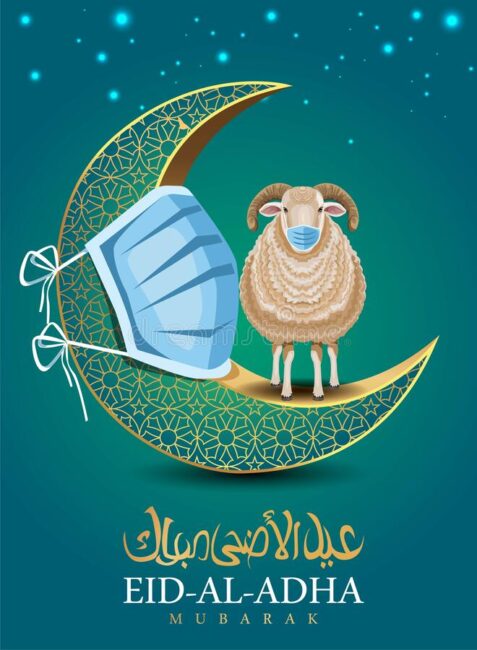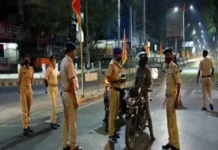The festival of sacrifice or Bakried is all about sacrifices for you, for life, for society, for Allah. The term sacrifice is indeed an unending series of virtuous actions, a special manner of living, a special way of thinking and feeling which influences the whole personality, whether this personality be of an individual or of a nation.
The week of Eid-e-Qurban (Festival of Sacrifice) besides its boundless joys occupies a high position in the spiritual, moral and collective life of the Islamic fraternity. In this week, millions of moths of the flame of the divine mission unite in the land of Hijaz from every corner of the Islamic world to go round the most ancient and oldest place of worship and renew the Abrahamic tradition; and there are millions and billions of those Muslims who though are bereft of the good fortune of making Hajj, however, too strengthen the bonds of this universal brotherhood by sacrificing their wealth in the righteous path according to their ability.
But if we think deeply, the Festival of Sacrifice is a sign which beckons the devotees of Allah to greater sacrifices than sheep, goats, lambs and camels; but if we account for our self today and review our national character, we would neither find that desire for sacrifice whose memory we celebrate with great preparation. Nor will we find that spirit of Abrahamic tradition anywhere which had told Muslims the secret of living for the truth and dying for the truth.
There was a time when we would readily sacrifice our self, our benefit, our leisure and comfort, our wishes and desires and the satisfactions and respects of our friends and relatives in the righteous path. Actually, our whole life denoted the sacrifice of gratification and undoubtedly the biggest sacrifice is indeed the sacrifice of gratification, because the relation of most of the defects of personal and social life joins up with selfishness and sensuality indeed; and whichever person and society sacrificed their gratification for the sake of truth, they indeed were successful in this world and the Hereafter and they understood the correct meaning of the Abrahamic tradition.
Sacrifice is not kalima (verbal confession of faith), but practice. It can only be evaluated on the standard of practice, not the touchstone of words and indeed practice too which is related to the higher values of human society. Then this practice is no single act or accidental event which is committed under some compulsive passion so that it illuminates the pages of history.
Sacrifice is indeed an unending series of virtuous actions, a special manner of living, a special way of thinking and feeling which influences the whole personality, whether this personality be of an individual or of a nation. Today if any father lays a knife on his son’s neck, the world will call him a madman, because his sacrifice –performed with whatever sincerity– is not in harmony with his whole life. On the other hand, the entire life of Abraham presents a long series of sacrifices in the path of truth; the ‘great sacrifice’ was merely the last and most important link of this series. Sacrifice is not inherent within us; I do not accept this.
That our nation is incapable of collective and individual sacrifice is also untrue. After all, it was the same elite and the impoverished who did not hesitate from the biggest sacrifices in the 1857 War of Independence and the Khilafat and Pakistan Movements. The ordinary citizens of Pakistan frequently present sacrifices according to their capacity even now. The reality is that without these sacrifices, the preservation and security of the state cannot even be imagined.
But within the last few years such traditions of selfishness and self-love have been established that the atmosphere of the whole country has been poisoned and the passion of sacrifice and collective welfare all but buried. These traditions will be broken and God-willing, soon. The spirit of sacrifice does not extinguish, it indeed has to awaken, it will awaken.
The week of the Festival of Sacrifice is also the week of Islamic brotherhood and unity and peace and security. During these blessed days, the Islamic world is full of the passion of the faith and the centre of its heart and sight is that holy place which has the honour of being the birthplace of the Prophet. There is no better time than that to strengthen the links of Islamic unity but alas that neither has there been an attempt for this in Mecca neither any practical display of unity and unanimity shown from the heads of Muslim states on the occasion of this international Islamic gathering.
During the days of Hajj, Muslims arriving from various countries and speaking different languages, no doubt join together in the plain of Arafat and while going round the Kaaba their bodies undoubtedly touch each other, but can we say with certainty that mental unanimity is also created within them and that the chords of their hearts also sing the songs of unity and brotherhood in harmony?
Alas that the political conflicts of Muslim states have gradually become so extreme that one can see no possibility of their unity in the near future. But we hope that circumstances will change and the desire for unity of the Muslim people will force the heads of Muslim states to come near one another; the foreign powers which fan conflicts and sow the seed of discord among Muslims will be defeated; and such a unity will be created among the Muslims of the world whose foundation will be built on the freedom, democracy, peace and prosperity of Islamic countries.
In closing, with reference to the story of Abraham, I am reminded of the poem The Parable of the Old Man and the Young by Wilfred Owen on World War 1, published posthumously in 1920 after Owen’s untimely death, thus more than a hundred years old this year; not only because of the Festival of Sacrifice which commemorates it, but also because it is still relevant to the plight of the Muslim world – ensconced as it is in a wanton cycle of war, conflict and bloodletting – at the moment of writing. Owen was only in his 20s when he was killed in battle just before the war ended. #KhabarLive #hydnews #hyderabadnews








[…] Source link […]
Comments are closed.